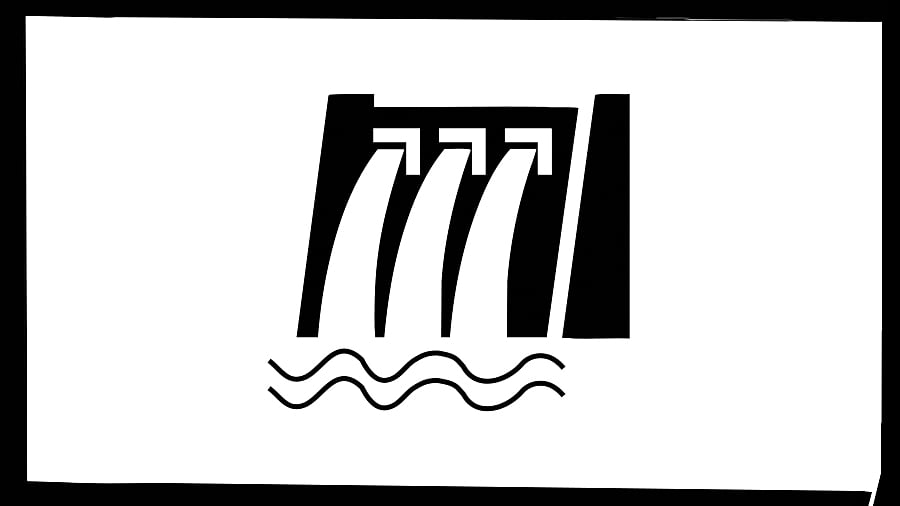
India’s recent decisions regarding hydropower projects signal a paradigm shift in how the country is considering these as strategic instruments. The Environmental Ministry’s in-principle approval for the Sawalkot hydropower project, New Delhi’s rejection of a Court of Arbitration ruling constituted under the Indus Waters Treaty (which India no longer recognises) regarding the Kishenganga and Ratle hydropower projects, and the recent review of the Draft Hydropower Policy 2025 by the Government of Jammu and Kashmir reveal that dams are no longer just about development.
What Jawaharlal Nehru once called “temples of modern India” have evolved far beyond their original purpose. These massive structures, once viewed primarily as engines of progress and prosperity, now serve as critical aspects of national security and international relations. The transformation reflects a broader global trend where infrastructure development increasingly intersects with geopolitical strategy.
Previously, when disputes arose over transboundary water projects, nations typically turned to international arbitration or multilateral agreements. But with time, the inadequacy of international institutions to enforce unbiased water-related policies became visible. The inability to have one definite path of resolution and ensuring accountability of involved countries, intertwined with strained relations across borders that derail potential solutions, makes nations naturally default to unilateral action. Nations are increasingly bypassing traditional ineffective dispute resolution mechanisms, prioritising their development imperatives over international frameworks. India keeping IWT in abeyance along with accelerating the implementation of five hydropower projects in J&K post Pahalgam attack, and Ethiopia’s completion of the Grand Ethiopian Renaissance Dam (GERD) despite ongoing disputes with downstream countries exemplifies this shift.
The urgency driving dam construction cannot be understated. With increasing global populations and climate change intensifying water stress, nations face immense pressure to secure water and energy resources. Hydropower projects serve multiple functions. Flood control systems protect lives, livelihood and infrastructure. Irrigation networks and water storage facilities sustain agricultural productivity and supply security during droughts and emergencies. The goal to transition away from fossil fuels makes hydropower increasingly attractive as a clean, reliable energy source with lower long-term costs and superior grid integration capabilities compared to many alternatives. These multifaceted benefits explain why nations refuse to halt dam projects despite political opposition.
The other strategic value of upstream dam control lies in the information asymmetry it creates. Upstream nations possess crucial data about water releases, seasonal flows, and emergency discharges that downstream countries require for agricultural planning, flood management, and economic stability. The timing of water releases becomes a tool of statecraft, and asymmetry creates dependency relationships extending far beyond the immediate river basin, influencing broader diplomatic and economic interactions.
Hence, the solution lies not in abandoning dam construction but in transforming how nations approach transboundary water management. Downstream countries must recognise that political obstruction will not halt upstream development; instead, it eliminates opportunities for collaborative solutions that could benefit all parties.
When downstream nations demonstrate genuine willingness to negotiate – offering benefit-sharing arrangements, or regional integration opportunities – upstream countries have strong incentives to pursue collaborative approaches. Successful examples include the Itaipu Dam built with Paraguay-Brazil cooperation, which led to Paraguay gaining 100% renewable energy usage, while Brazil derives 20% of its energy from this single dam. Years of conflict were resolved through control-sharing agreements, demonstrating that cooperative solutions are achievable when nations prioritise mutual benefit over political posturing.
Dialogue for progress
But such incidents are not universal. India’s dam construction in Arunachal Pradesh exemplifies a contrasting priority-driven approach. Faced with China’s massive dam on the Yarlung Tsangpo and its refusal to provide adequate information about the project, New Delhi is left with no choice but to build defensive infrastructure. India’s proposed dams in the north-east region are not merely development projects but strategic necessities designed to mitigate potential flooding, manage sudden water releases, and ensure water security for millions of Indians.
In addition, there is a need for substantial investment in satellite technology, ground monitoring stations, and continuous remote-sensing surveillance to maintain independent hydrological data from critical nodal points, enabling to counter upstream water management decisions that may adversely impact the downstream
region.
This situation illustrates how even nations committed to cooperative approaches are compelled to take unilateral action when upstream neighbours refuse meaningful engagement – a reality that underscores the importance of genuine dialogue. The key is moving beyond zero-sum thinking towards measures that recognise legitimate development needs while establishing mechanisms for information sharing, environmental protection, and equitable benefit distribution. This requires upstream nations to bring in transparency and downstream nations to engage constructively rather than simply opposing projects.
As international organisations continue failing to provide effective governance for global water resources, individual nations will increasingly prioritise their development imperatives over diplomatic niceties. This reality doesn’t diminish environmental considerations or downstream concerns – it should motivate stakeholders to engage more urgently in finding sustainable, collaborative solutions.
The choice is clear: nations can either work together to ensure these lifeline projects serve broader regional interests, or they can continue the path where unilateral action becomes the norm. The former gives hope for shared prosperity; the latter guarantees continued tension and missed opportunities for joint development. The temples of modern infrastructure need not become monuments to international discord – if nations can choose cooperation over confrontation.
(The writer is a geospatial
research analyst at the Takshashila Institution)